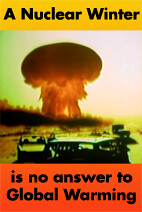When is a rose not a rose?
When it is torture. David sent me the link to this great Sunday Times article by Andrew Sullman, Torture by any other name is just as vile, on the furore over whether the US has "legally authorised the torture of terror suspects in its prisons".
Yes, US/CIA torture is not new, and I suspect it is not exclusive to the recent 'War on Terror'. However, the difference this time is whether the US government has legally sanctioned it. Or, as they prefer, sanctioned something else:
So we are reduced to fighting over a word, “torture”. President George W Bush’s preferred terminology is “alternative interrogation techniques” or “coercive interrogation” or “harsh interrogation methods”, or simply, amazingly, his comment last Thursday that a policy of waterboarding detainees is merely a policy to “question” them.Sullman turns to Orwell's famous essay on 'Politics and the English Language' for insight, and quotes Orwell:
“A mass of Latin words falls upon the facts like soft snow, blurring the outline and covering up all the details. The great enemy of clear language is insincerity. When there is a gap between one’s real and one’s declared aims, one turns as it were instinctively to long words and exhausted idioms, like a cuttlefish spurting out ink. In our age there is no such thing as ‘keeping out of politics’. All issues are political issues, and politics itself is a mass of lies, evasions, folly, hatred, and schizophrenia. When the general atmosphere is bad, language must suffer.”
 Can Australia be smug about all the use of torture to get information from terror suspects? Many, including I, believe that the only Australian prisoner left in Guantanamo, David Hicks, was tortured – his military lawyer Major Mori has confirmed he was physically assaulted and Hicks is repeatedly placed in solitary confinement – but the Howard government continues to accept the US government's word on it and deny it happened.
Can Australia be smug about all the use of torture to get information from terror suspects? Many, including I, believe that the only Australian prisoner left in Guantanamo, David Hicks, was tortured – his military lawyer Major Mori has confirmed he was physically assaulted and Hicks is repeatedly placed in solitary confinement – but the Howard government continues to accept the US government's word on it and deny it happened.The Australian courts have also found that Australian 'terror suspect' Jack Thomas was tortured in Pakistan, and reaffirmed that any statements he made under torture were inadmissable as evidence in Australian courts. What got swept away in the media frenzy over whether the courts were 'going soft on terrorists' was ther fact that Australian Federal Police officers were present during interrogations – torture – and rather than stopping it, proceeded to use Thomas's torture statements as evidence against him.
At least Australia's penchant for not beating about the bush revealed something else about this country: these incidents were not glossed over in arguments over words – i.e. whether this was really torture or 'harsh interrogation'. Instead, there was an argument over whether terror suspects deserved to be tortured to extract information for 'national security'.
If you feel you want to do something about this, take a look at the GetUp! campaign for David Hicks. Or take a look at Amnesty International's work. They've been campaigning against torture across the world for many decades now. A pity they still have to. As Amnesty International says, 'Torture doesn't work to stop terror. Torture is terror'.
[Image: 'war on terror' prisoners at Guantanamo Bay prison]
Labels: politics










1 Comments:
As a further note, I found this piece on terror in Iraq via a Daily Briefing tip (thanks again, David):
Patrick Cockburn wrote in The Independent last week:
'The state of terror now gripping Iraq is as bad as it was under Saddam Hussein. Torture in the country may even be worse than it was during his rule, the United Nation's special investigator on torture said yesterday.
"The situation as far as torture is concerned now in Iraq is totally out of hand," said Manfred Nowak. "The situation is so bad many people say it is worse than it had been in the times of Saddam Hussein."'
Post a Comment
<< Home